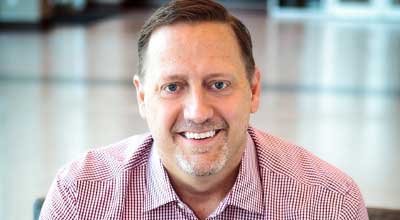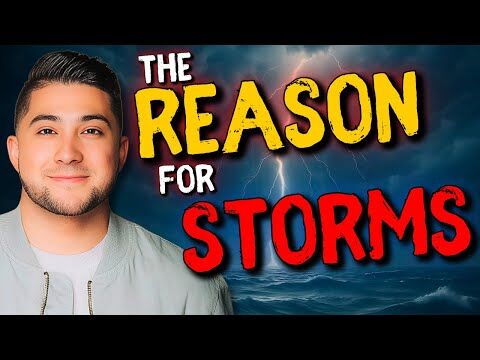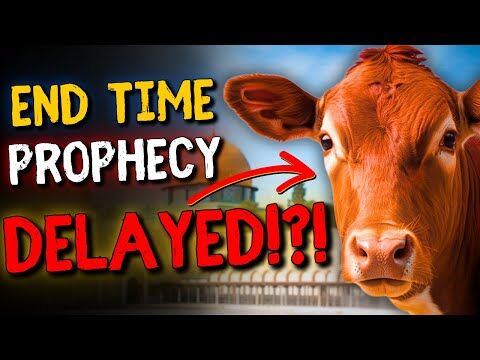For months, Dino Rizzo’s church campus looked like a war zone—bodies, blankets and beds everywhere. Dazed men meandered the hallways, haunted by the uncertainty of their future. Mothers rested with their children on tiny cots in the sanctuary, passing time with card games, nursery rhymes or anything that could get their minds off the nightmare they’d just endured.
Sixty miles away, New Orleans lay almost entirely underwater after the city’s levees collapsed under Hurricane Katrina’s 2005 onslaught. Here in Baton Rouge, La., tens of thousands had fled to the neighboring city in the late August heat. And overnight, Healing Place Church (HPC), the church Rizzo founded, transformed into a literal refuge for displaced Louisianans as it housed, fed, clothed and cared for anyone who needed help. Though this outreach-minded community of believers was prepared—they’d prepped thousands of meals before the hurricane and had gathered a citywide army of volunteers for everything from tree removal to medical aid—still, there wasn’t a member who wasn’t physically, emotionally or spiritually stretched to the limit by Katrina.
Amid the families grieving over their losses and volunteers pulling 50-hour shifts, amid the destruction and exhaustion, Rizzo couldn’t help but marvel at the beauty underneath this chaotic scene. The vision God had birthed in this pastor 12 years prior—of a church that would be a healing place for a hurting world—wasn’t just being expressed through his congregation, but among the citywide church that for years had been divided by racial walls, denominational lines and high-profile scandals.
“I look back and don’t know how we got through that,” Rizzo says today. “But it was the best time I’ve ever seen in the body of Christ. I could go to heaven and say I saw the book of Acts. A group of about 15 to 20 pastors made a covenant that whatever money we had, we all had. It was Acts 2—we all put it together and said, ‘What do you need?’ And there was literally millions of dollars distributed from this group of churches. I’d never seen that in my 20-something years of serving God.”
Seven years removed from Katrina, Rizzo is still witnessing an unprecedented gathering of churches transforming their communities by using no-strings-attached acts of kindness to share God’s love. It’s a revolution of service—a “Servolution,” Rizzo calls it—that’s run wild among the 8,000-plus members of HPC’s eight campuses spanning Louisiana, Texas, Mozambique and soon Honduras. And though Rizzo is quick to point out that he’s not trying to lead a new movement (“This is Jesus’ movement, and it’s been around forever”), his church has become a prime example of how a revolution based on—of all things, compassion—can spread like wildfire.
How Can I Serve You?
Rizzo is a pastor’s pastor, which is why it takes him 30 minutes to go 30 feet after a Sunday service. Our tour of HPC’s new facility has been continuously interrupted by a steady stream of handshakes, high-fives, hugs and heartfelt conversations. As an outsider, it’s given me a chance to verify the rumors I’d heard about “Pastor Dino.” It turns out they’re true: The man possesses a genuine, unconditional love for others.
“He loves people in a way I’ve never seen before,” says Claudia Berry, who leads the strategic planning and development for HPC’s 80-member staff.
At the heart is Rizzo’s uncanny way of making everyone feel like part of the family, which he credits to his Italian roots. And as I watch the 47-year-old interact with his core staff over lunch, it’s as if I were at a family reunion rather than a church leadership meeting. The room stays loud, jubilant and filled with life amid the multiple conversations, and at the foot of the table sits Pastor Dino, ensuring that everyone has been served and any guests have been showered with gifts.
“He’s a giver,” countless people tell me, with most offering personal accounts of when Dino and his wife, DeLynn, surprised them with an unexpected or generous gift. The reason, I discover later, goes back to the couple’s early years of ministry.
As a 23-year-old Dino worked under Baton Rouge icon Jimmy Swaggart as a youth pastor and ran the televangelist’s $300,000-a-month, 30-vehicle bus ministry. He’d been saved in a Word-Faith church in Myrtle Beach, S.C., and at Swaggart’s Bible college, Dino began to merge the bold faith he saw modeled around him with the burning passion he’d always had to reach those less fortunate.
“He’s always had a heart for those who nobody else wanted to love on and care for,” DeLynn says. “We never thought we’d pastor a church; he just thought about helping those kinds of people.”
But in 1993 the Rizzos faced a major crossroads. They’d turned down multiple job offers to become youth pastors of some of the nation’s largest churches, though they couldn’t explain why other than they didn’t sense a clear direction from God. Amid their uncertainty, a district overseer for the Church of God (Cleveland, Tenn.) approached Dino about helping with a dying church that he was shutting down and restarting under a different name.
“We don’t even know why, but we said we’d help,” DeLynn recounts.
Three weeks later, the overseer handed Dino a $100 check and the church, explaining that he’d been commissioned elsewhere.
On his first Sunday as pastor, Dino became so nauseated before preaching that he left to walk around the mall.
“It was horrible,” he says of those first few weeks. “I could barely preach. We didn’t have music, we didn’t have a facility, we didn’t have youth or videos. We just wanted to help people—that whole Acts 10:38 deal where Jesus ‘went about doing good and healing all who were oppressed.’ We only had 12 people, so we just sat around and thought of ideas. We started reaching widows and single moms. That developed into a helps ministry, cooking meals and visiting people.”
Get to Give
Within four months, the church—then called Trinity Christian Center—grew to more than 70 people. And already the Rizzos were beginning to sense the unique calling and identity God had given them. Their first offering was a $400 check written in the living room of Lakewood Church founding pastor John Osteen, who wanted to be the first to sow into their ministry after listening to Dino’s plans to reach the poor and hurting.
That vision took on new meaning when, after a “free garage sale” unexpectedly went viral, the congregation became known around town as “the church that gives stuff away.” Soon businesses were calling to offer pallets—and eventually trucks—filled with everything from rat bait to bananas to bottles of Snapple to lingerie. Other ministries, such as Joyce Meyer Ministries, came alongside the church with additional resources to reach the poor.
“We just started giving away whatever we received, and the more we gave away, the more we were given to give away” DeLynn says. “It became a part of who we were, and we loved it. God would just drop this stuff in our laps, and we knew we had to give it away.”
The couple has not only upheld this open-handed principal of stewardship, they’ve embedded into their church’s DNA the fundamental belief that everything is a gift from God to be used to reach people. That includes a stunning $44 million main campus with a state-of-the-art media center and a community sports complex open year-round to the public. For a couple used to getting their hands dirty in outreach, the new 127,000-square-foot facility isn’t just a quantum leap from their old one, it’s emblematic of the world of contrast in which the Rizzos now live as their ministry sphere has grown.
“It’s only a space,” Dino says of the new facility. “Space serves the vision for being a healing place for a hurting world. First, it’s about God’s heart and the vision He gives you; and then you have space to serve. And if you don’t have the space, you find creative ways to make it work.”
Having always found ways to “make it work” regardless of space, the church and its pastor aren’t taking for granted their new opportunity to reach more people via the expansion. During the 3 1/2-year construction of the campus, for example, Dino made sure the sports fields were completed first so HPC could host communitywide events such as little league baseball or soccer.
The result: Hundreds of people came to know the Lord and joined the church before its new doors were ever opened.
Reaching for a Dream
The new space is also allowing HPC to better equip other churches around the world that have joined the “Servolution.” To date, more than 700 churches, ministries and small groups have come together in person and online to exchange outreach ideas, share resources and work together for more effective ways to impact their communities.
This past February, HPC launched a Greater Things Compassion Coalition and hosted a gathering of major compassion-based ministries, with the intent of sharing more practical ideas for local outreach. The HPC team, among other ministries represented, brought an astounding breadth of outreach experience to the table: block parties, bicycle giveaways, water bottles for drivers in traffic, foster-care programs, cancer-prevention programs, gift-wrapping at the mall, nursing home tea parties, flowers for prostitutes, haircutting services, special-needs care, dental clinics … and dozens more programs they’ve tried.
“If it lines up with the vision of the church and it’s something we can facilitate, we will at least give it a shot,” says J.P. Brumfield, HPC’s outreach coordinator. “Because reaching people is creative; it’s not a magic formula.”
To that degree, the Louisiana church continues to make its mark with sheer creativity, having been consistently recognized by Outreach magazine among the nation’s most innovative churches. While HPC pushes the envelope with new ways of serving, almost all of these ideas are birthed within the congregation, not just at leadership meetings.
“HPC is one of those rare places that helps to facilitate the dreams, purposes and ideas that God births in the hearts of people—and then takes it to another level through a church dedicated to serving” says Craig Boutte, HPC’s pastor of the Baton Rouge Dream Center.
Boutte knows all about turning dreams into reality, as his downtown ministry center imparts hope to thousands of inner-city residents’ lives each year. Located in a 70805 zip code that ranks among the nation’s top five for murders and violent crimes, the Dream Center and its sister ministries have been so consistent and effective in helping the community that today local, state and even federal government officials—from police officers to politicians to state attorneys—regularly call upon HPC for assistance. This, in turn, has opened remarkable doors such as working with the state to link foster children with foster parents, or receiving more than $10 million in grant money over the years.
Berry, who is also the church’s resident grant writer, believes the key to HPC’s favor with government agencies has been staying focused on the cause of Christ rather than running pursuing government connections simply for financial aid.
“Churches and the government run in parallel lanes, and they’re both trying to help, though from a different perspective,” she says. “We just do what’s in our heart, use what’s in our hands to try to serve the community, and God grants influence. The Word says His gifts will bring you before kings, so we just use the gifts He’s given us and it takes us in places where there’s influence. Then we’re able to say, ‘This is what’s happened—look what the Lord has done—and we just want to do more.’”
For a Bigger Cause
As I sit in a worship service after seeing multiple angles of HPC in action, I can’t help but marvel over the same phrase Berry used: Look what the Lord has done. Given the default self-centeredness of today’s American culture, it’s astounding how God has drawn thousands into a selfless “Servolution.” Yet the Lord has also given this unique church a voice not only to speak life into its local community, but also to the global body of Christ that is once again bringing active compassion into the forefront rather than relegating it to a side ministry.
Matthew Barnett, founder and pastor of the Los Angeles Dream Center, has been a leading proponent of this move since the early 1990s, yet he recognizes the Holy Spirit’s unique work with Dino and HPC.
“When I first met Pastor Dino, I knew I had met a man who lives to be a miracle in everyone’s life on a daily basis,” Barnett says. “He has shaken up the American church by allowing us to see that church is so much bigger than Sunday service; it is a lifestyle of service.”
That “Servolution” lifestyle goes beyond one-time outreaches and trendy “social justice” efforts. It’s a lifelong commitment to showing and sharing God’s love, whether by helping to fix a pimp’s car or sitting with a dying cancer patient.
“We’re not serving for service’s sake,” Dino reminds me. “We serve for the cause of Jesus Christ. We’re not humanitarians; we’re not building a charity. It’s not even social justice. Our social justice comes out of a compassion for the cause of Jesus Christ. We do the Great Commission—we’re on a mission from God because He commissioned us. We feel like our bent is compassion, but the compassion is for the cause of Jesus Christ.”
“Everything we do is through the love of Christ,” DeLynn adds. “It’s not just, ‘Well, here’s a plate of food.’ We don’t push the church down their throat, but we do tell people, ‘God loves you, and He’s thinking about you today.’”
Some are surprised this simple approach works in Baton Rouge, where people are as familiar with hardships as they are the Bayou blues. Yet even as the effects of Katrina, a recession, high crime and harsh poverty linger, HPC has watched life after life transformed via the Holy Spirit’s work through a few simple words or a simple gesture.
As the worship service ends, the campus pastor urges people to sign up for one of the kazillion outreaches listed on the bulletin for the upcoming annual “Servolution Week.”
“Really, what’s listed here for Servolution this year is just another week at Healing Place Church,” he explains. And whether HPC members realize it or not, that’s part of the true miracle taking place in this revolution.
In true Louisiana fashion, Marcus Yoars was treated like a king while filing this story from Baton Rouge. Unfortunately, he ate like one too.












































